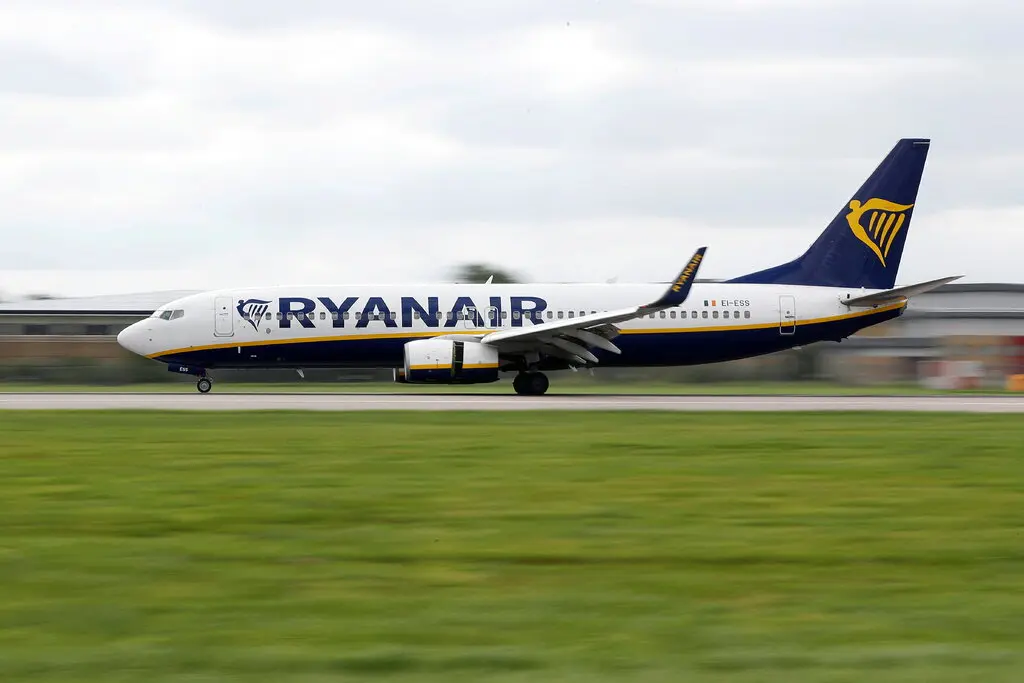
Ryanair has dropped a requirement that South African passport holders pass a test written in Afrikaans — a language with a racist legacy that many South Africans don’t speak — to prove their nationality before boarding certain flights after the policy was widely criticized as discriminatory and nonsensical.
In an email, the company on Wednesday confirmed that the quiz would no longer be used, pointing to statements made by its chief executive, Michael O’Leary, that it “doesn’t make any sense.” The comments were first reported by the BBC.
South Africans were angered by the test, which relied on a language imposed by the former white-led apartheid government on the country’s Black majority. Today, Afrikaans is the third most widely used household language in the country at 13 percent.
“They have genuinely offended an entire nation,” said Dinesh Joseph, a 45-year-old South African leadership and management trainer who had to pass the test to return to London from the Canary Islands.
Ryanair’s about face comes as South Africans prepare on Thursday to commemorate a seminal moment in their resistance to Afrikaans: the anniversary of the 1976 Soweto uprising, in which thousands of protesters, mostly Black schoolchildren, marched against the government’s efforts to require instruction in Afrikaans in school. The police fired on the protesters, killing hundreds.
The language’s racist legacy continues to resonate with many people in South Africa, where Zulu is spoken in more households, 23 percent, than any of the country’s more than 10 official languages. (English is the household language of 8 percent of South Africans.)
Some South African travelers reported feeling shocked and humiliated by the test requirement. Many South Africans expressed their frustration on social media, calling Ryanair’s requirement racist and even calling for a boycott of the airline.
Despite the complaints, Ryanair stood by the test requirement for weeks, saying it was implemented for flights to Britain because of a “high prevalence” of fraudulent passports from South Africa. The airline, a low-cost carrier based in Dublin, also characterized the quiz as “a simple questionnaire.” It asked travelers to name things like South Africa’s biggest city or national animal. Those unable to answer correctly would be denied boarding and given a refund.
Although the South African government had publicized recent cases of passport fraud, it was critical of Ryanair’s tactics, saying that the airline had access to systems to verify the authenticity of passports.
“We are taken aback by the decision of this airline,” Siya Qoza, a spokesman for South Africa’s Minister of Home Affairs, said in a statement last week, adding that the test was a “backward profiling system.”
Ryanair has not said why it chose Afrikaans as the language for the test. And Mr. O’Leary expressed little remorse for the policy, calling the South African government’s allegations of profiling “rubbish,” according to Reuters.
“Our team issued a test in Afrikaans of 12 simple questions like what’s the name of the mountain outside Pretoria?” he said during a news conference in Brussels on Tuesday. “They have no difficulty completing that.”
Mr. Joseph called Ryanair’s reversal “a bittersweet victory.” The airline was taking a step in the right direction, he said, but he complained about a lack of explanations of accountability for what he called an “insanely discriminatory” practice.
Although Mr. Joseph, who spoke English growing up, passed the test with the help of Google translate, he said that Ryanair needed to recognize the emotional distress the policy caused.
“I would like to see an apology, certainly to the people who had to go through it,” he said, “and also just to the South African people in general.”
FEATURED IMAGE: A Ryanair aircraft landing at Gatwick Airport in Crawley, Britain, in 2021. Peter Nicholls/Reuters
By Emma Bubola and John Eligon/The New York Times




